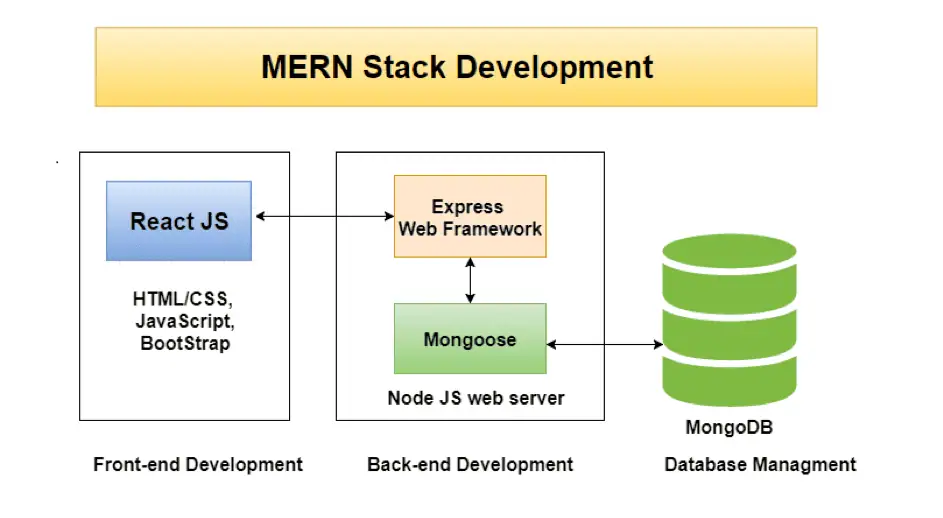MERN Stack Development
What is MERN Stack Development?
Definition:
MERN Stack Development refers to a full-stack web development framework that leverages four key technologies: MongoDB, Express.js, React, and Node.js. The MERN stack is designed to provide a seamless and efficient development environment for building modern, dynamic web applications. Each component in the stack plays a specific role in the development process, contributing to the creation of robust and scalable applications.
Analogy:
Think of MERN Stack Development as a well-orchestrated team of specialists working together to build a complex structure. Each member has specific expertise: MongoDB for data storage, Express.js for server-side logic, React for the user interface, and Node.js as the runtime environment. Together, they form a cohesive unit that streamlines the development process.
Further Description:
The MERN stack comprises the following components:
MongoDB: A NoSQL database that stores data in a flexible, JSON-like format, allowing for scalable and high-performance data storage.
Express.js: A web application framework for Node.js that simplifies the creation of robust and scalable server-side applications.
React: A JavaScript library for building user interfaces. React allows developers to create reusable UI components, making the development of interactive and dynamic user interfaces more efficient.
Node.js: A JavaScript runtime environment that executes server-side code, enabling the development of scalable and high-performance web applications.
MERN stack development typically follows a single-language paradigm, as JavaScript is used for both server-side and client-side development. This uniformity contributes to a more streamlined and cohesive development process.
Why is the MERN Stack Important?
Efficiency: MERN stack development streamlines the entire web development process by using JavaScript for both client and server-side, promoting code reuse and reducing development time.
Scalability: The combination of MongoDB and Node.js allows for the development of highly scalable and performant applications that can handle a large number of concurrent users.
Flexibility: MERN stack provides flexibility in choosing the appropriate tools and libraries, allowing developers to adapt to project requirements and preferences.
Real-time Applications: The event-driven architecture of Node.js makes it suitable for real-time applications, such as chat applications or live updates in web applications.
Examples and Usage:
Social Media Applications: Platforms like Facebook and Instagram use MERN stack development to deliver a responsive and dynamic user experience.
E-commerce Websites: MERN stack is often employed in building e-commerce websites, ensuring scalability and responsiveness for handling large amounts of product data and user interactions.
Project Management Tools: Applications like Trello leverage the MERN stack to create collaborative and real-time project management tools.
Key Takeaways:
- MERN Stack Development involves MongoDB, Express.js, React, and Node.js, providing a comprehensive framework for full-stack web development.
- It promotes efficiency through the use of a single language (JavaScript) for both client and server-side development.
- The stack is well-suited for scalable, real-time applications and is flexible in adapting to project requirements.
- Popular applications using MERN stack include social media platforms, e-commerce websites, and project management tools.
Table of Contents





